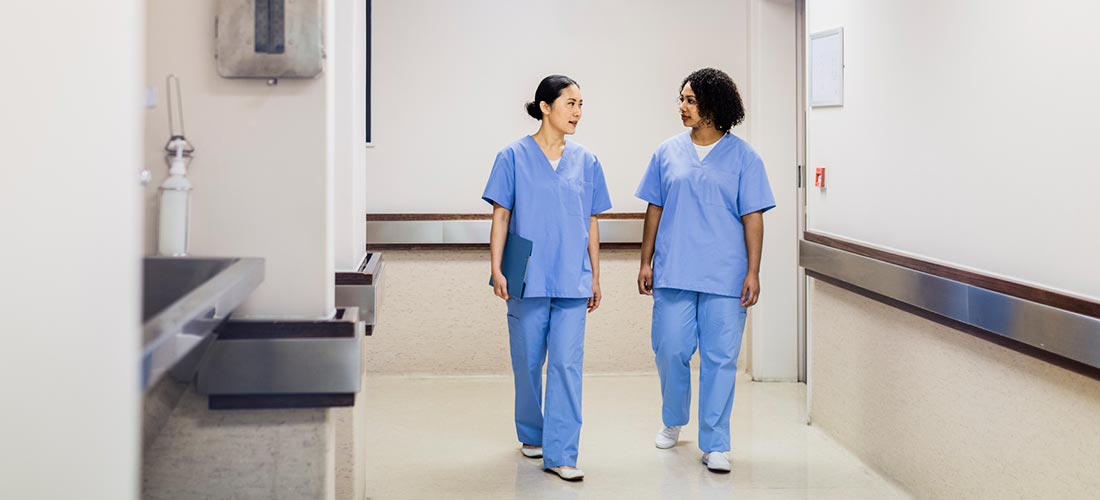3 Ways to Build Nurse Resiliency in 2019
By: Aorn Staff
Published: 4/6/2022
3 Ways to Build Nurse Resiliency in 2019
A Conversation with Cheryl Connors, RN, MS, NEA-BC

Building resilience to handle the highly emotional work of perioperative nursing care is a challenge and can even be impossible for some. Often it takes support from a peer to help.
In 2011, we launched the RISE (Resilience in Stressful Events) program at Johns Hopkins Hospital to help second-victims—care providers dealing with the trauma of a tragic patient event.
While we are not mental health providers, through the development of this program we have learned it doesn’t take a single traumatic event to become a second victim. Often, it’s the day-to-day emotional stress events that can drag a nurse down and make it harder and harder to bounce back.
Luckily, we have found a few important ways to build and maintain the resiliency that health care providers need in order to manage stress and feel good—both physically and emotionally.
Here are three strategies we use and teach in our peer-support program to help build resiliency and cope with stress at work.
Debrief
Work with a peer to create a space to share a stressful experience and receive support. This can happen formally through a peer-support program or informally with a trusted colleague. This debrief is not focused on the details of the event. Rather the emotional and/or psychological experience as a result of the event.
Ground yourself
Focus your mind on the present and learn to feel more balanced and aware. For example, if you are in a quiet place after experiencing a stressful event, you can practice deep breathing, remind yourself that you are no longer in that experience, and calm yourself to feel grounded.
Resource Resilience-Building Tools
Identify a person, a place, or an experience that makes you feel good (a happy place) and put yourself in that place mentally, allowing the feelings you experience while there to overcome you. This can also be an action you take that you know makes you feel better, such as getting good sleep or going for a run. These tools can be shared with a trusted colleague or friend to help you remember to use these tools when your resilience is low.
Connors and her RISE team will present more recommendations on building resilience through peer support at the Leadership Summit at AORN Global Surgical Conference & Expo on April 9 in Nashville, TN. Seating is limited. Register early to reserve your space.
Cheryl Connors, RN, MS, NEA-BC is a Patient Safety Specialist at Johns Hopkins Hospital in Baltimore.

